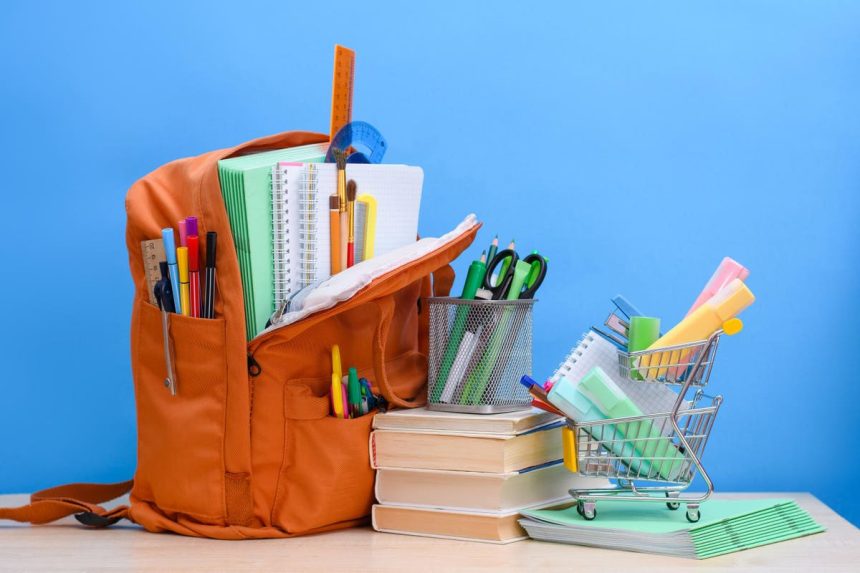We’re a month or so into summer, and my inbox is already filling up with back-to-school offers. According to the National Retail Federation, 80% of shoppers expect higher prices this year—and more than 2/3 of shoppers typically plan shopping around sale events. When every dollar counts, taking advantage of state sales tax holidays can help reduce costs.
A sales tax holiday is a period of time—often falling over a weekend—when a state will waive or reduce their sales tax payable on certain items. Many states focus their annual sales tax holiday on back-to-school supplies.
Sales Tax Holidays
Here’s a look at states offering taxpayers a break on sales tax for back-to-school items this year:
Alabama (July 21–23) Exemptions apply to purchases of clothing ($100 or less per item), computers (single purchase up to $750), school supplies, school supplies ($50 or less per item), and books ($30 or less per item). Not all counties and municipalities are participating—click here for a list of those who have notified the state of their decision.
Arkansas (August 5-6) Exemptions apply to purchases of clothing and footwear ($100 or less per item), clothing accessories ($50 or less per item), electronic devices, art supplies, and school supplies. All retailers are required to participate and may not charge tax on items that are legally tax-exempt during the Sales Tax Holiday.
Connecticut (August 20-26): Exemptions apply to purchases of clothing and footwear ($100 or less per item), excluding clothing accessories, protective or athletic clothing, and certain shoes.
Iowa (August 4-5) Exemptions apply to purchases of clothing or footwear (up to $100 per item); for any item that costs $100 or more, sales tax applies to the entire price of that item.
Maryland (August 13-19) Exemptions apply to clothing and footwear purchases ($100 or less per item), including sweaters, shirts, slacks, jeans, dresses, robes, underwear, belts, shoes, and boots priced at $100 or less.
Mississippi (July 28-29). Exemptions apply to clothing and footwear purchases ($100 or less per item regardless of how many items are sold simultaneously); accessory items are not included. Footwear does not include cleats and items worn with athletic or recreational activity.
Missouri (August 4-6) Exemptions apply to purchases of clothing ($100 or less per item), school supplies ($50 or less per purchase), computer software ($350 or less), personal computers or computer peripheral devices ($1,500 or less) and graphing calculators ($150 or less).
New Jersey (August 26-September 4) Exemptions apply to computers (sales price of less than $3,000), school art supplies, school computer supplies (sales price of less than $1,000), school instructional materials, school supplies, and sport or recreational equipment sold to individual purchasers for non-business use.
New Mexico (August 4-6) Exemptions apply to purchases of footwear and clothing, excluding accessories ($100 or less per item); school supplies ($30 or less per item); computers ($1,000 or less per item); computer peripherals ($500 or less per item); and book bags and backpacks ($100 or less per item).
Ohio (August 4-6) Exemptions apply to clothing purchases ($75 or less per item). Exemptions also apply to school supplies ($20 or less per item) and instructional materials ($20 or less per item).
Oklahoma (August 4-6) Exemptions apply to purchases of clothing and footwear ($100 or less per item), including those made online. An item that is $100 or more is taxable.
South Carolina (August 4-6) Exemptions apply to various back-to-school essentials, from clothing, accessories, and shoes to school supplies, backpacks, and computers. Online sales are included.
Tennessee (July 28-30) Exemptions apply to purchases of clothing ($100 or less per item), computers ($1,500 or less), and school and art supplies ($100 or less per item), including online sales. Apparel that costs more than $100, as well as accessories, remain taxable.
Texas (August 11-13) The law exempts most clothing, footwear, school supplies, and backpacks priced under $100 from sales and use taxes. The exemption applies to brick-and-mortar sales and those made online or via catalog.
West Virginia (August 4-7) Exemptions apply to certain clothing (purchase price of $125 or less), laptop and tablet computers (purchase price of $500 or less), school supplies ($50 or less), and certain sports equipment (purchase price of $150 or less).
Expirations
Remember that while some sales tax holidays are permanent, others may have expiration dates—like Virginia and Wisconsin.
The Fine Print
This list is meant to provide general guidelines for state sales tax holidays based on the information available at the time of publication. Some states may be very specific about what you can exempt, so click on the links to your individual state’s revenue announcement or ask your retailer for more details.
Keep in mind that some states offer counties and towns the option not to participate, so again, check with your state if you have questions.
Also noteworthy? Some states have no statewide sales tax (Alaska, Delaware, Montana, New Hampshire, and Oregon), while others (like Pennsylvania and Vermont) already exempt necessities like clothing. Still, others offer special exemptions for hurricane supplies, Energy Star appliances, and other items.
I’ll continue to update the list as information becomes available (feel free to contact me with changes or updates).
Happy shopping!
Read the full article here





